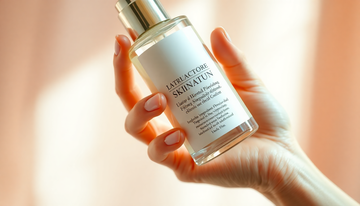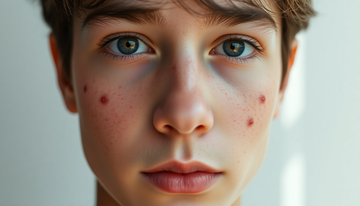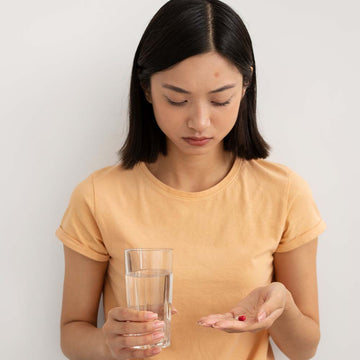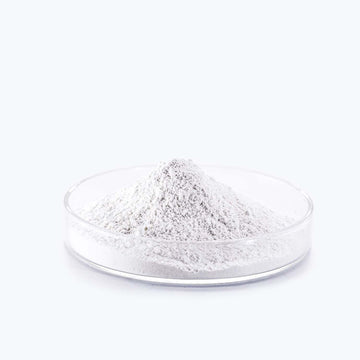As the seasons shift, particularly during the transition from the easygoing days of summer to the cooler grasp of winter, your skin undergoes a series of adjustments. During this period, you might observe your skin feeling tight, dry, and experiencing more acne breakouts than usual, leading you to wonder: "Does weather impact acne?"
Understanding Seasonal Changes in Your Skin
Your skin thrives on consistency, and any alterations, be it in your skincare routine or due to changing weather conditions, can trigger adverse reactions, hindering your desired outcomes.
Transitioning from Warm to Cold Weather
As the warmth of summer yields to the coolness of fall, a noticeable drop in temperature and humidity occurs. This abrupt change challenges your skin, which is accustomed to a specific level of atmospheric hydration, to maintain the necessary moisture for its protective barrier. The dryness is emphasized by brisk winds, leading to puffiness, cracks, and flaking. To cope with these dry conditions, your skin may overproduce oil, contributing to the onset of winter acne.
Temperature shifts aren't the sole contributors to winter acne and irritation. Seasonal transitions also bring about behavioral changes, such as indulging in warmer showers and using heating systems at home, further depleting your skin's moisture. This can lead to winter bacne, especially in hard-to-reach oily areas like the upper back.
Transitioning from Cold to Warm Weather
With the arrival of warmer weather, your skin adapts to increased humidity. While humidity itself doesn't directly cause acne, there is a genuine concern for heat-related acne. Humid air traps oil on the surface of your skin, creating a warm environment conducive to the thriving of acne-causing bacteria.
Nurturing Your Skin Through Seasonal Transitions
To address acne and irritation resulting from seasonal changes, it's crucial to modify certain hygiene habits and incorporate key products into your skincare routine.
During less humid seasonal transitions (from summer to fall and fall to winter), limit your showers to five minutes and avoid very hot water.
Choose the Right Cleanser
Wash your face with a lightweight, gentle non-foaming gentle cleansers, especially after sweating. Avoid excessive washing, which can aggravate your skin.
Opt for Oil-Free Sunscreen and Moisturizer
Regardless of the season, wear oil-free and lightweight sunscreen and moisturizers to avoid clogging pores.
Weekly Exfoliation
Combat a buildup of dead skin cells by adding a gentle exfoliating product to your skincare regimen once a week, especially during the summer.
Shower After Sweating
Take a shower promptly after sweating to prevent clogged pores, and if immediate showering isn't possible, use a soft, damp cloth or oil-free cleansing wipes.
Change Out of Sweaty Clothing
Swap sweaty clothing promptly to prevent trapping sweat and bacteria in your pores. Remember, the temptation to pop or pick at pimples should be resisted to prevent inflammation, hyperpigmentation, and scarring. Instead, apply a topical treatment with salicylic acid or benzoyl peroxide to blemishes. If preventive measures and topical treatments prove ineffective, consulting with a dermatologist for personalized advice and appropriate treatment options is recommended. To know more click here.
FAQ "Frequently Asked Questions."
1.Does the change in weather directly cause acne?
No, weather changes don't directly cause acne. However, they can exacerbate existing skin conditions.
2.How long should I limit my showers during seasonal transitions?
It's advisable to limit your showers to five minutes, especially during less humid transitions.
3.Can humidity cause acne on its own?
Humidity itself doesn't cause acne, but it can contribute to heat-related acne due to increased oil production.
4.Is it essential to use oil-free products in all seasons?
Yes, using oil-free products is recommended to avoid clogging pores and preventing acne breakouts.
5.Why is winter acne more common in certain areas like the upper back?
Winter bacne is often exacerbated by behavioral changes like warmer showers and indoor heating, leading to increased oil production.
6.How can I prevent acne when transitioning from cold to warm weather?
Opt for oil-free sunscreen and moisturizers, and promptly shower after sweating to prevent clogged pores.
7.When should I consult a dermatologist for acne issues?
If preventive measures and topical treatments aren't effective, seeking professional advice is recommended for personalized solutions.





